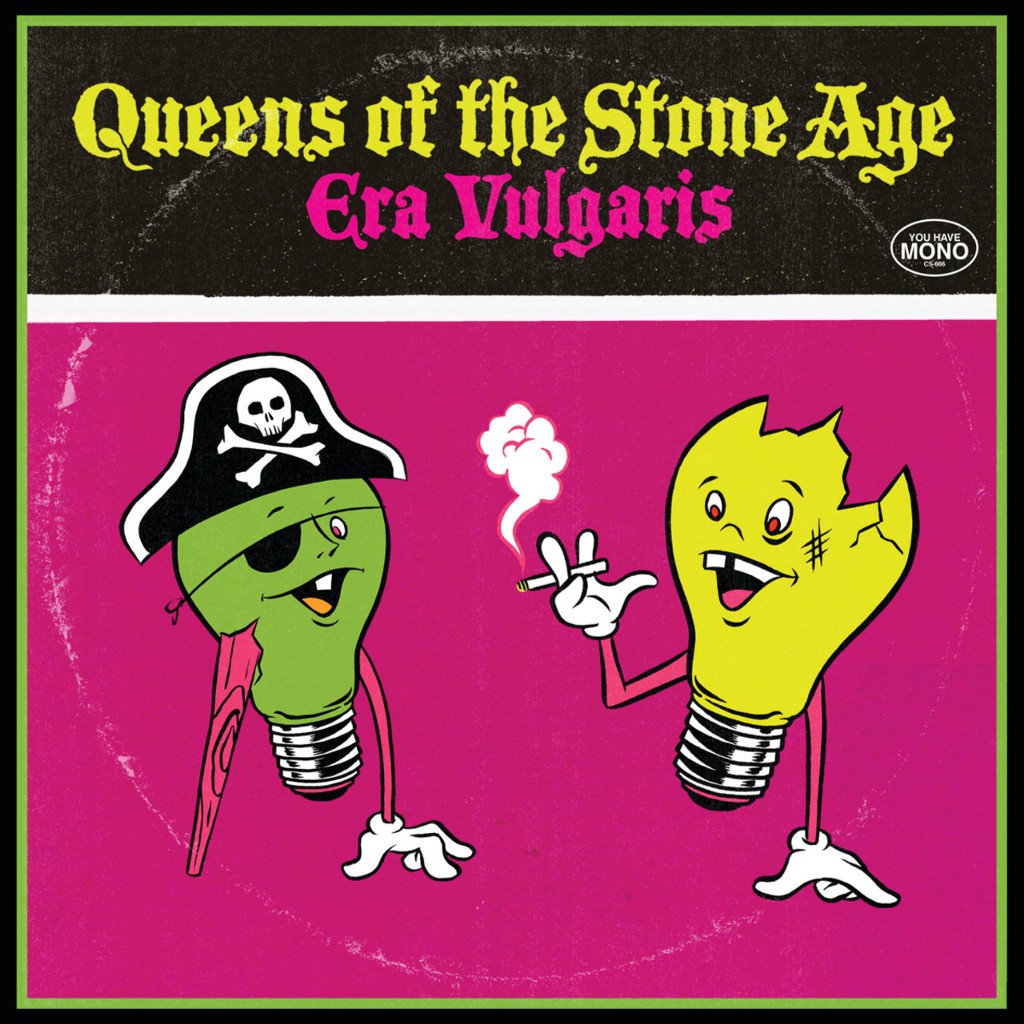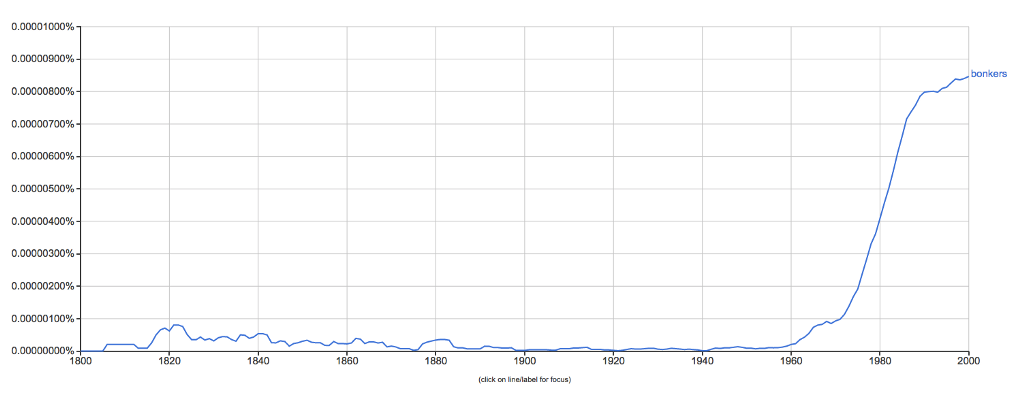Jared and Ivanka Host Dinner

IVANKA is project managing a dinner she is hosting to convince JUSTICE KENNEDY to retire this summer. She understands how important a right-wing judiciary is to her father’s base, and believes that a vacancy on the Supreme Court could distract from the all the obstruction of justice and treason talk. IVANKA realizes that she hasn’t heard from JARED in a few hours and rushes to her bedroom to scold him for sleeping during the day.
JARED [sitting on his bed and flipping through an old yearbook, reading his senior quote, a lyric of his favorite band at the time, the Wallflowers.] We could be heroes, just for one day. [JARED smiles as he remembers the day his father wrote the check to Harvard, how special it made him feel to have a dad who would open doors for him, especially at the expense of worthier individuals.] I can be a hero anywhere. I don’t need to be a hero in Washington. Where do Democrats always want to move? Scandinavia? Denmark could be fun.
IVANKA [standing in the door and imagining that she is drowning JARED, not herself]: Another soliloquy? To leave or not to leave? Wake up, Jared. This is your life now. You’re not going anywhere.
JARED [existentially]: I haven’t had a dream since we moved into this dumb house.
IVANKA [logically]: If you’re Hamlet that makes me Ophelia. Which means you’ll be the one who kills my father. [IVANKA takes the yearbook from JARED, and begins tearing pages from it, until the binding breaks.] Go downstairs and help the help with dinner. This is not Hamlet. It isn’t even King Lear. It’s Frontline and we are about to defund PBS. Besides, the President is mine to avenge, not yours.
JARED [putting on his tie and jacket]: First, can I try to get the Lockheed Martin CEO on the horn again?
IVANKA [shaking her head]: Don’t use my brothers’ diction. [IVANKA texts JUSTICE KENNEDY that they will be serving Korean tacos tonight, and that he should please, please bring his appetite.] If we are moving anywhere it will be France and I will probably leave you for Emmanuel Macron.
JARED walks to the dining room, dragging his feet and whining the entire way. JARED is really crabby even though the media reported that he was the one who convinced TRUMP to fire James Comey earlier this week. IVANKA pays no attention as she directs her staff to fill a piñata. JARED eats a carrot stick from the veggie tray and immediately gets the hiccups.
JARED [hiccupping]: Why the fuck do carrots always give me the hiccups?
IVANKA [inspecting the fill of the piñata and then showing her assistant the tree in the yard it should hang from]: It’s been a stressful week for all of us. No one cares about how much air you swallow while eating.
The doorbell rings and it is JUSTICE KENNEDY. He is wearing his judicial robes, tattered and soiled, and he is extremely out of breath.
JUSTICE KENNEDY: I’m sorry that I am catching my breath, before meeting with the family of a coequal branch of government, but a terrier chased me half a block.
IVANKA gestures to JARED to get up and greet the Supreme Court Justice. She motions to her staff to bring JUSTICE KENNEDY a towel to dry his sweaty face.
JARED [rolling his eyes]: Hello Justice.
IVANKA [lying]: Justice Kennedy, it’s so nice to finally meet. In this household, we worship your judicial restraint and moderation. [IVANKA dabs the Justice with the towel.] Please accept my deepest apology for the damage. She’s Steve Bannon’s dog and sometimes she loosens herself out of her leash.
JUSTICE KENNEDY: That’s kind of you to dog sit for Mr. Bannon. I didn’t realize he was still in the picture, to be frank.
IVANKA [shamelessly]: He may join us for dinner. He has been staying upstairs.
The KUSHNER CHILDREN enter, singing “But Her Emails,” a song they wrote themselves, to the tune of “Frère Jacques.”
JUSTICE KENNEDY [eating a carrot stick and then hiccupping]: What delightful children!
There’s a loud rolling sound coming from upstairs. IVANKA knows that it is STEVE BANNON, awake from his nap and bowling with cannon balls he has pilfered from the Coast Guard.
IVANKA [texting STEVE BANNON to quit it, unless he wants to scare off their best hope for reclaiming the narrative]: Jared, why don’t you tell the Justice about your newest business plan?
JARED [entering his carrot sticks into MyFitnessPal]: It’s Netflix but for tap water.
JUSTICE KENNEDY [raising his water glass disgustedly]: Is this from a tap?
IVANKA: No, no. Jared’s product will be bundled with the AHCA if the Senate can ever move away from —
STEVE BANNON enters. There are still marks on his bloated face from the mask his doctor prescribed him for his sleep apnea. He is eating Twizzlers and yelling at his dog to heel.
JUSTICE KENNEDY [randomly]: I’ll never forget where I was when I learned Twizzlers were made of mostly flour.
STEVE BANNON [shoving the Twizzlers into JUSTICE KENNEDY’s personal space]: Want one? Be careful. [STEVE BANNON winks theatrically.] Yours might be poisoned.
IVANKA [texting her chef that they are ready for dinner to be served]: Steve is kidding. He doesn’t think you’ll voluntarily retire while my father is President.
STEVE BANNON [truthfully]: You’re not in the family.
JUSTICE KENNEDY [enjoying arguing]: What about my vote that healthcare, one of the largest sectors of the economy, is not commerce?
STEVE BANNON [enjoying arguing]: What about your vote to uphold the constitutional right to abortion, only in the narrowest of circumstances?
JUSTICE KENNEDY [acknowledging that he agrees to disagree]: I thought it was just brilliant to submit to the media a list of judges the President, if elected, would like to appoint to the Supreme Court, to help convince those otherwise disinclined to voting for him that he cares deeply about dissolving public sector unions. It worked on me, in fact.
STEVE BANNON [eating a fistful of Twizzlers]: What’s for dinner?
KUSHNER CHILDREN [in unison]: Taco night! Kimchi! Kimchi!
STEVE BANNON [gagging himself]: Barf.
The staff sets up the taco making station on the dining room table. Everyone but STEVE BANNON digs in. Even the BANNON DOG begs for kimchi.
JUSTICE KENNEDY [chowing down, and getting food everywhere]: I never knew a dog to eat vegetables. She must like the funk from the fermentation.
IVANKA [kicking the dog]: Please excuse her.
STEVE BANNON: The bitch hasn’t been the same since they made me spay her.
IVANKA [powerfully]: We asked that if you insist on not crating her, you make an accommodation. Spaying a dog that regularly escapes from her restraints seems reasonable, don’t you think, Justice Kennedy?
JARED takes a Twizzler from STEVE BANNON’s stash, and begins coughing hysterically. JUSTICE KENNEDY texts his former clerk and current colleague, JUSTICE GORSUCH, that he wasn’t wrong about these people.
IVANKA [calmly]: Steve, you told me you were kidding about the poison.
STEVE BANNON [truthfully]: I was. He isn’t choking.
IVANKA [sternly]: Jared, you aren’t choking. Justice Kennedy, he isn’t choking. [IVANKA gestures to her children to begin their presentation about why JUSTICE KENNEDY should retire before the market crashes and even government pensions disappear.]
JARED [having an aha moment]: What does it even matter? [JARED dramatically pushes away from the table.] I’m going back upstairs.
JUSTICE KENNEDY [rising to shake JARED’s hand]: The Prince of Washington, what a delight to finally meet you. I see now that the executive branch is in very steady hands. [JUSTICE KENNEDY texts ROBERT MUELLER to please pick him up as soon as he can. He has lots to share.]
JARED brushes past JUSTICE KENNEDY, and walks not upstairs, but into the yard. He picks up the broomstick next to the tree where the piñata is and begins whacking the papier mâché skull. He whacks and misses, whacks and misses. Eventually the piñata falls down, without breaking. He kicks it, but he still can’t break it open. Defeated, JARED sits on the ground and texts IVANKA that he is outside and asks whether someone can bring him a jacket.
Music For An Uncommon Era
It’s time to admit Queens of the Stone Age’s widely panned ‘Era Vulgaris’ is good.

“I think the two most difficult things to deal with in life are failure and success” — David Lee Roth
For the last few months, Queens of the Stone Age have been teasing a new album like it’s Bret Michaels’s 1986 hair. Given the fractured nature of release dates and schedules these days, it could be months before we hear a note, or it could magically travel through spacetime in a flash, like a nude Terminator Schwarzenegger and be forgotten by the day after tomorrow. For a band whose catalog exhibits eclecticism bordering on schizophrenia, it’s hard to predict what a new album will sound like. Josh Homme is a divisive, bro-y kinda savant, possibly the last rockstar of a bygone era who still has the chutzpah to cause a ripple in an overcrowded ocean of music. Responses to a rare new album from the band can usually be cut right down the middle, 50/50 for and against, but ten years ago, when their fifth album Era Vulgaris came out, it was widely considered by fans and critics to be the band’s worst. Today, it plays like a prescient piece of street art that the masses weren’t ready to understand.
The record begins with enough dead air to make you check if something’s broken, and the jarring, distorted, harmonized ohm that follows is your first clue that something, in fact, is. The drums, both beat and tone, sound like they could have been made in a garage down the street. A distorted synth plunking out whiskey-legged off-beats are the next barrier to entry. In a foretelling of his future collaboration with John Paul Jones, Homme’s guitar enters like a Led Zeppelin after the crash and burn with a bass line that wavers completely out of key and back in again.
If the listener hasn’t already abandoned ship because of the challenging, sub-radio production, a stark departure from their previously slick studio work, the first lyric, an irreverent statement of intent will probably turn them away, “You’ve got a question, please don’t ask it/ Put the lotion in the basket,” the frontman croons, somehow straight-faced. With that, you know that you’re in for a drunk drive through the underside of a decaying city, four or five too many and cocaine of questionable origin in a stall. Loose-lipped, off-color quips that might not pass the next-morning test. If this doesn’t sound like your kinda party, you’re no fun, head home.
Homme apes the ridiculous big rock tradition of the singer calling in the guitar player for a solo by saying, “I sound like this:” and follows it with a series of oddly selected notes and bends, a singular style that came to fruition on this record that he’s continued to cultivate since, as if he’s searching for new notes and scales that are off the instrument, and skipping all the ones we’ve come to expect from decades of phoned-in lead guitar playing. (It’s a style that would reach its apex on his next project, the aforementioned Them Crooked Vultures, whose lone eponymous record is a clinic of musicianship, production and offbeat, fearless songwriting put on by Homme, drummer Dave Grohl and Led Zep bassman John Paul Jones.) From there, the song’s bridge goes on a horror movie bad acid trip of tempo stacking and guitar sliding that’s masturbatory, not in it’s gratuity, but in that it requires an actual jacking-off motion.
“Sick, Sick, Sick,” the lead single from the record begins with imperfect stabs at dissonant chords like an obnoxious alarm clock or bomb raid warning. Drummer Joey Castillo enters with his typical boxy, caveman pounding on boulders with bones style and throughout the song, guitars, bass and synth build to a cacophonous racket that never quite meets in the middle at a single key. The song is, in fact, sick (in the head) and it’s a glorious fuck you to radio and musical norms of auto-tuning, grid-perfect timing, and song structure.
At the time, critics either didn’t know what to do with this oddity, or outright rejected it like it was Stravinsky’s Rite of Spring in 1913. People weren’t ready for this level of aural dissonance and flouting of musical standards, sales for Era Vulgaris fell far short of the band’s numbers from previous records and listeners deserted like cats with their ears pointing backwards. The Village Voice said, “with the band sounding listless and drained of ideas, it starts trying anything,” and that the albums’ “stuttering robo-fits are basically energy-drink commercials still ripping off The Matrix.” Basically! Still! The Guardian opined, “something is lacking” on songs it called “oddly slender” and that “lurch distractingly rather than flow.” And Pitchfork? “In attempting to cover too much ground, the band loses focus and direction.” “Everyone sings like they’re scared of their own voices,” and that old timeless classic dis: the “obnoxious bridge on album closer ‘Run Pig Run’ kills any chance it might’ve had for worthy inclusion on a future edition of Guitar Hero.” Indeed, as the subsequent decade has proven, inclusion in a shitty video game is the gold standard metric by which all music is judged.
Fans of the band, who often focus more on set dressing and cast of characters, rather than the albums themselves, also disapproved. They longed for the days of Nick Oliveri, nude but for a bass guitar, who helmed some of Queens’ most embarrassingly bad songs, and was later ousted for violence toward women and concertgoers (he has since admitted that the firing was justified). And, of course, Dave Grohl. Yes, his drumming on Songs For the Deaf is goddamn unassailable, but Dave’s not gonna stop the Dave Grohl Machine to be a sideman, so let’s all deal with it, why don’t we? He’s been replaced by a wild animal and then a master craftsman, what more can Homme do to replace arguably the greatest living rock and roll drummer whose aspirations go far beyond drumming?
Era Vulgaris is practically a case against the band’s past selves. Following a string of radio hits from 2002’s Songs For the Deaf and 2005’s Lullabies to Paralyze that lead the band into bona fide rockstar territory, Queens — with apparent intent — narrowed their fan base. The grimy lo- to mid-fi production and raunchy jokes guaranteed little or no radio play for these songs. Era Vulgaris would be their final record of a major label deal with Interscope records, and its six-years-in-the-making follow-up, 2013’s stellar, cinematic …Like Clockwork would be released through indie legends Matador Records, completing the band’s transition out of the mainstream.
On songs like the robotic ragers “Misfit Love” and “Battery Acid,” the band drips with lurid, half-serious sex appeal and musical prowess. Just try to imagine yourself playing two drum beats at once, like Joey Castillo does here, and here. And is that chorus where Homme declares, “There’s nothing you can say/ You can’t wish me away,” the first and only instance of Stone Temple Pilots nostalgia in history? I think so. “Make It Wit Chu” is a straight up, bluesy goofball sex jam, the joke of which you can only fully understand by realizing that Dean Ween has partial writing cred. The end of the record spins off into a nightmarish, creepshow swirl of twisted psychedelia on “River In the Road” and “Run Pig Run.” It leaves the listener wondering how they got here, returning to the beginning for further listens like a drunk waking up and checking his outgoing messages for incriminating evidence.
The record is a beautifully imperfect monster — a zombie of a former arena rock band. You recognize it and want to invite it in, but you’re afraid it might eat your neck. This is the Pet Sematary version of Queens of the Stone Age that would launch Homme and a cast of legends, unknowns and in-betweens on an artistic journey that keeps unfolding in astonishing and unexpected ways.
Homme almost seemed to know that the record would require a long gestation period. Speaking to Pitchfork prior to the album’s release, he referenced Iggy Pop (whom he’d later work with on the stellar Post Pop Depression) and how it took “35 years for the public to understand the Stooges. I’ve never seen a time release that long before.” It’s been ten years since the release of Era Vulgaris and we can all now acknowledge that everything is falling apart, the empire is crumbling. Homme felt it then and he embraced it, making beautiful, fucked up art out of the the ruins of a dysfunctional relationship with life. Now it’s time for us to let the zombie in. Pour him a drink. He’s dying of thirst.
John Dziuban is no longer a musician. Metal Minutiae is an occasional column on the decline of rock music.
You've Got To Admit It's Getting Bonkers
What an exciting time to be a language blogger.

From reading the transcripts of Trump interviews to an digging into an oral history of the ‘dumpster fire’ (linguistic and pictorial), there is a lot of material coming out of the political scene these days, language-wise, to chew on. Needless to say the language blogs are ON IT—here is an excerpt from a very thorough blog post about an on-air expletive from last night’s “The Last Word with Lawrence O’Donnell.” The political strategist Rick Wilson used the phrase “ripshit bonkers” to describe how Trump might “go” on Republican congressmen who abandoned their support of him. The language columnist, linguist, and lexicographer Ben Zimmer wrote:
I’d posit that rip (the) shit out of contributed more significantly to the formation of ripshit. (I acknowledge this is pure speculation, since the word wasn’t previously part of my idiolect, though it totally is now.) Rip the shit out of fits the construction “VERB the TABOO TERM out of (something),” which I’ve discussed here in the past: see my posts on “I’m going to have to science the shit out of this” and “I agreed the fuck out of it.” (There’s also scare/bore the shit out of, which, as Brendan O’Kane noted recently on Language Log, has generated the “fecal intensifiers” scared/bored shitless. I’ll return to that in another post.)
Strong Language is a language blog dedicated specifically to discussing swears. How dorky and perfect is that? I like it because I sure feel like I’ve been doing a fuckton more swearing than in past administrations. Four days prior, another Strong Language contributor, Nancy Friedman, dove even more deeply into a seemingly growing pile of shitshows she’s noticed piling up since January 20, 2017:
The origins of shit show or shitshow are, alas, murky. Although it sounds like an expression that might have been invented by Americans serving in World War II (like fubar) or Vietnam (like clusterfuck), shitshow appears not to be American in origin at all. The major U.S. dictionaries, Merriam-Webster and American Heritage, have not yet added it to their online word hoards. The online Collins Dictionary, based in the UK, received a reader-submitted “new word” entry for shit-show (yes, hyphenated) in 2012: “A chaotic, freewheeling state of affairs characterised by rampant disorder and the apparent absence of any thoughtful organization.” The OED added its own entry for the term (spelled shitshow) only within the last couple of years; it’s labeled “U.S. coarse slang” and defined as “a situation or state of affairs characterized by chaos, confusion, or incompetence; a mess, a shambles, a debacle.”
Over at Language Log, the OG lang-blog, tha god Mark Liberman looked into the age-old question “flipped off” or “flicked off?” (Just kidding—the real question is “who would ever say ‘flicked off’ on purpose?”) His jumping-off point is a tweet about Republican Darrell Issa’s rather rude response of a hand gesture to a reporter’s question about James Comey.
I just asked @DarrellIssa abt the Comey news and he flicked me off — literally gave me the middle finger — and kept walking. Said nothing
As Liberman writes, it’s like the “bu?? naked” case (where the answer is obviously butt, not buck).
Anyway I have found at least some comic relief in these little explorations into the way we use words to express how completely batshit the first 120 days of the Trump administration have been. The way some people gravitate towards math and numbers to make sense of the world, I gravitate towards words and their utter dissection, from etymology to spelling to pronunciation to usage. My biggest sporting event of the year, The Scripps National Spelling Bee, will be here in just 11 more days (the website has a counter). But what I will not stand for is the spreading of false facts. So I must insist on telling you that despite its perfect illustration with a Tim and Eric GIF, this tweet is sadly false:
When I found out "slang" is short for "short language" https://t.co/BctPlcF3y3
Given how popular this tweet was, maybe this new apocryphal definition will just supplant the old! But “slang” is much older and more Scandinavian than you think. From the Online Etymology Dictionary (I couldn’t for the life of me track down the Liberman citation; please send it if you can):
1756, “special vocabulary of tramps or thieves,” later “jargon of a particular profession” (1801), of uncertain origin, the usual guess being that it is from a Scandinavian source, such as Norwegian slengenamn “nickname,” slengja kjeften “to abuse with words,” literally “to sling the jaw,” related to Old Norse slyngva “to sling.” But OED, while admitting “some approximation in sense,” discounts this connection based on “date and early associations.” Liberman also denies it, as well as any connection with French langue (or language or lingo). Rather, he derives it elaborately from an old slang word meaning “narrow piece of land,” itself of obscure origin. Century Dictionary says “there is no evidence to establish a Gipsy origin.” Sense of “very informal language characterized by vividness and novelty” first recorded 1818.
A word that ought to have survived is slangwhanger (1807, American English) “noisy or abusive talker or writer.”
Slangwhanger! I can think of quite a few. It’s fucking Friday. This week has been bonkers. Let yourself enjoy the sweary shit. It feels fucking great.
T.Raumschmiere, "Jaguar"
What’d I say?

I’ve said a lot of stupid things in my life. Hurtful things, vicious things, things that were untrue. I’ve said things I regret, things that still haunt me in the middle of the night when I can’t sleep and I think back to the moment when I said them. I’ve said things in anger that I haven’t meant and I’ve said things very calmly that I have, but shouldn’t have said anyway. I’ve said things in bad faith and I’ve said things that I thought were completely true only to find later — sometimes years later — that I was not coming from the place of sincerity I believed myself to be at the time. I’ve said things in ignorance and I’ve said things in arrogance. I’ve said things for which there can be no apology, even now. But the worst thing I’ve ever said was, “I can’t wait until this election is over, everything will be better after that.” What a fucking idiot. Please don’t ever listen to me about anything ever again.
Except music! I’m still pretty good on music. Here’s something from T.Raumschmiere’s Heimat, which is out today and is very good. You can take my word on that. Enjoy.
> You don't have to feel like an alien
From Everything Changes, the Awl’s newsletter. Subscribe here.

I asked readers of Everything Changes what they’d tell their 18-year-old selves, if they could (inspired by this tweet).
You can read all the responses here, and below is a small fairly random selection. (Yes, someone did say “Wear sunscreen,” which I also think is good advice.)
- Just because somebody is romantically interested in you doesn’t mean you have to be romantically interested in them.
- Thirst is not a good look on you.
- It’s okay to be nice to yourself.
- You are right to want to get out, and you are right that you will not come back. — Meredith M-N
- Stop spending money on bad bullshit; just spend it on *quality* bullshit. — Hugh P.
- Hey, you’re gay! That’s why you feel like you don’t fit in! — Erin D.
- You will find your place, over and over again. — Megan
- Everyone is going to sell out. You will do it less than others and it will make your life harder. — Amy K.
- Just buy shrink-to-fit Levi’s 501s, wear ’em dark, you don’t need any other jeans.
- It’s OK, sex isn’t supposed to be like this. You don’t have to feel like an alien. — Z.
- Get an IUD. Remembering birth control pills is for the birds.
- Get therapy. The kind of therapy matters. Get cognitive behavioral therapy.
- It’s okay to be “intimidating.” — A.M.
- Just because someone is older than you does not make them smarter than you. Remember that. — Kat
- Do it now. — Julianne F-M
- Life’s a lot better outside the closet. — Fernando P.
- Don’t steal your best friend’s man to help boost your own self confidence. Just because you can doesn’t mean you should. — Julia H.
- Your relationship with God is the only one that won’t let you down at some point. But if you build it, it’s more than enough to keep the other ones (and you) alive. — Patrick
- Don’t tolerate bad, fucked up behavior just because you think those perpetrating it are cool. — H.S.
- When he asks you to marry him, say yes.
- In June of 2016 you will swim in the ocean with three people who love you and you will mostly not be scared. Armadillos will make your heart swell. Maybe don’t take shrimp on a backpacking trip. Every time you travel (unless you are depressed) you’ll come home with a few new poems. You have plenty of time to write them.
- FOR GODS SAKE DONT GET 150K INTO DEBT JUST FOR AN UNDERGRAD DEGREE
- Say “yes” first. — Rich M.
- The most important thing is to remain true to yourself. Don’t listen or give a shit what anyone else thinks. Trust me. — Esme W.
- Stay away from Sophie. She is not your friend.
- Try to make friends with yourself. Try to be kind to this person (you!) who is just trying to do their best. — Hannah
- Please stop beating yourself up about having gotten accidentally pregnant twice. You are not gross or stupid, your sexuality is not gross or stupid. In ten years you will look back at this time and marvel at how brave and strong you were.
Thank you so much to everyone who added thoughts.
How weird is it to reach a point in your life where you’re kind of wise? Weird and nice.
From Everything Changes, the Awl’s newsletter. Subscribe here.
New York City, May 17, 2017

★★★★ Indoors it was already hot, in the brightness of early morning. Outside the night’s coolness was only tenuously hanging on. The schoolyard gate failed to open on time, and the children backed up on the sidewalk got rowdy at the sight of the empty playground. Once the sun got higher, stepping out the door was like setting off a flash. Tattoos were emerging and hot asphalt was giving off its smell. A women, her legs bare and pale, reached over and cupped the inner bottom of the seat of the suit pants of the man she was walking with. Iced coffee droplets dotted the notebook page. A tour bus stood in the middle of Fifth Avenue, top deck and lower deck and driver’s seat all empty. The office temperature was low enough to prompt a walk outside and over to Sixth Avenue and back in the sharp sunshine. Pockets of stale traffic exhaust and stray air conditioning stayed hot or cold in the sluggish air.
To Hell And Back in Offenbach's 'Orphée aux enfers Overture'

Since writing about Strauss II last week, I’ve found myself completely pulled into the world of mid-19th century light music. I’m trying to return to Beethoven and the likes, trust me, I really am, I’d love to write about sad Brahms piece sometime in the near future (remember him?), but I cannot turn away from the spectacular weightlessness of light music. Pun intended!! Maybe it’s just the coming of spring — slow, but taking hold of the Midwest now. For example: I was sweating outside last weekend, and that’s the last time I want to listen to a heavy and anxious Bernstein recording of Beethoven’s 5th.
Strauss II also got me back on a whole kick about overtures, so here is perhaps my first beloved orchestra, Jacques Offenbach’s Orphée aux enfers Overture, known in English as Orpheus in the Underworld. We all know the Greek myth of Orpheus, but I don’t know, maybe there are teens who read this column who haven’t hit AP Lit yet so they aren’t familiar. Orpheus was a poet and a musician whose wife, Eurydice (a cool name, a much cooler name than any of the Game Of Thrones names people keep naming their babies) dies suddenly of a viper bite on her ankle (actually maybe this is why Eurydice isn’t a popular name) and is sent to the Underworld, as was “the deal” at that time. Orpheus, so overwhelmed in his grief, goes into the Underworld and plays his music for Hades and Persephone, king and queen of the Underworld. And those two say, “okay, great tunes, you can take your wife back with you, but only if you walk out of the Underworld with her behind you and you can’t look back at her until you’re back in the land of the living.” Weird, tricky Underworld conditions, sure, but seems fair enough. Well, you gotta believe that Orpheus messes this up: he gets worried, he looks at Eurydice, she vanishes, this time forever. The Orpheus myth to me was like the purest embodiment of “YOU HAD ONE JOB.” So there’s that.
Offenbach, on the other hand, was a German-born French composer who lived from 1819–1880 writing mostly operettas. He looked wild. Look at him.

It was his work that inspired composers like Strauss II, but at the time he was alive, he was kind of the troll of the composing world. Many of his operettas parodied or satirized serious operas or operettas; he was hated by both our friends Berlioz and Wagner (the latter also had something to do with some latent anti-semitism). Was this a good thing for him to do? Honestly, I don’t know. At the time of its premiere in 1858, Orpheus of the Underworld was not an immediate success and in fact panned for being “sacrilegious and disrespectful,” and then, for controversy’s sake, it became a smash success. French people, you know?
The overture (it’s Bernstein, of course) begins with a fairly traditional fanfare, not entirely remarkable, though certain big and brassy enough to catch your attention. This being the overture to an operetta, we do get the movement between themes the way we did with the Die Fledermaus overture. This is like a Broadway overture — a preview of what’s to come. By the time it hits the 22-second mark, with the precious little melody between the high strings and the triangle (the triangle), it should be clear that this is light music unlike you’ve heard before. It’s funny! The tone of it is actively amusing.
The first third of the overture is relatively solo-heavy: we move from the clarinet to the oboe. The oboe solo is strange: melancholy and lyrical all at once. The oboe is not always an easy instrument to love (sorry), because it is tough to be a team player if you play oboe. It doesn’t really sound like anything else! I mean, sure, it sounds kind of like a clarinet, but clarinet at least has the decency to have that rich, expensive-wood-furniture sound to it at times. But there have always been a lot of times to me where the inevitable oboe solo comes in and go, “Oh here’s this idiot.” It’s not fair, I know. This one, however, always catches me. It sounds like such a distinctive voice in the midst of this overture. And then it leads right into the cello, damn it. What could be better? A cello solo? In the first third of a piece? You should be thanking me (and Offenbach).
The piece takes a turn at the 3:51 mark: dark, frightening, intense. This is a formal reset, shifting us out of solo world and back into the triumphant morning announcements of the early moments of this piece. Almost immediately, we’re launched into a violin solo that almost sounds like it would normally come right before the end of a piece of music. This violin solo, however, guides the orchestra along with it through the middle third of the overture. It’s sweet, and it’s perhaps the most traditional “light music” section of the overture. I mean, this is a waltz! It’s a little dance between the violin and the orchestra.
The final third: you know this. You definitely know this because you have been alive on Earth and have ears with which you have heard music for such a long time. It’s the Can-Can. Not just any Can-Can. The Can-Can. This is the Can-Can, from music pop culture and Moulin Rouge! This is the origin. It did not spring forth out of nowhere, but it was, in fact, written by a human man. Isn’t that insane? That someone wrote it? This is its purest form: the drug that is the Can-Can. I have so little to say about it beyond: it is the best thing in the world. You may be a dunce and think that the Can-Can is annoying. It’s fucking not. It is good as hell, and there’s nothing you can do about it. And it’s so perfect, in my humble opinion, that the Overture ends with that. You listen and you think, “this is good, it works, I like it,” in a passive and nice way. It’s a very satisfactory piece, of course, up until that point, but then, when the Can-Can comes in, it’s just BANG. It contextualizes all of it! All of it is a prelude to the Can-Can. And you immediately have to listen to it again, you have to reset, because once you know it’s coming, you know it’s there the whole time, like Orpheus himself, you find yourself looking back.
Fran Hoepfner is a writer from Chicago. You can find a corresponding playlist for all of the pieces discussed in this column here.
Shows Of Prey
What “The Pickup Artist,” “To Catch A Predator” and “Cheaters” had in common.
Back in the mid-aughts, my father’s DVR overflowed with shows about predators. There were episodes of MTV’s “The Pickup Artist,” NBC’s “To Catch a Predator,” and the syndicated program “Cheaters,” and when I visited him, he would force me to join him in his “man cave” and watch them. He would laugh and laugh, and even though my brain was cobwebbed by grad school, I realized something about this experience was profoundly discomfiting. All three shows dealt with troubling subject matter of widely varying levels of cultural acceptance, but at the back of them was a simple theme: sexual predation. The zeitgeist has long since abandoned pickup artistry, serial entrapment of sometimes-reluctant sex offenders, and candid-camera busts of unfaithful partners, but why had some viewers embraced them in the first place? There was, I suppose, a weird kind of “gotcha” factor at play in all these cases: the aspiring pickup artists sometimes got their girl, the cheaters usually got their comeuppance, and the captured predators always got the humiliation many felt they so richly deserved. Viewers could be entertained by lifehacking at its crudest: one group of seemingly hopeless cases were trained to be better people, while another, far more dangerous group wound up locked away for a long time.

When pickup artistry burst on the scene, propelled by the alarming success of Neil Strauss’s The Game, it was promoted as a way of instilling confidence in put-upon beta males. Men like Mystery (né Erik von Markovik), the featured dating coach on “The Pickup Artist,” saw their duty as redeeming hopeless, introverted nerds, thereby granting them access to the princesses to which a long line of nerd-oriented entertainment had told them they were entitled. Budding pickup artists preyed upon reluctant women, hoping to “neg” and “kino escalate” them into “number closes,” in the process trying to win the various challenges and events set before them by the showrunners.
As described by Strauss, these terms had been developed and refined over the course of years of research shared on internet forums. The “seduction underground,” as the large online community of people doing this research was called, became the subject of widespread media attention — some of it critical, some of it merely descriptive or even weirdly encouraging. Through pickup artistry, aggressive predation was normalized as esteem boosting, and men like those described in Strauss’ The Game could be viewed in a positive light: they had transformed from zero to hero and taken what was rightfully theirs. But it was disturbing to see these tactics incorporated into an MTV series: it was like we were watching high-pressure sales being closed, with an undercurrent of sexual hostility running through the entire exchange. It was one thing to discover a troubling subreddit full of “rules” and “tips” for talking to girls, but something altogether different to see trainees sent into the field to utilize that material to attract unsuspecting “arbitrary targets” (ATs).
“To Catch a Predator,” a “Dateline” spinoff, occupied a similar place of prominence in mid-aughts culture. The show, which spanned only four seasons from 2004 to 2007, represented a collaboration among “Dateline” producers and the show’s correspondent Chris Hansen, local law enforcement, and an internet-based vigilante organization called Perverted-Justice that provided technical support for the sting operations being conducted. The show had an easy-to-follow format, as potential “predators” were identified and isolated in chatrooms by a Perverted-Justice team member, contacted via the phone by another team member, and then ordered to bring specific incriminating items with them, such as beer and condoms, when they travel to an appointed location where Hansen, a master of the disapproving-dad demeanor, awaited their arrival. After learning that the object of their trip wasn’t actually showering or drying off or whatever they always claimed to be doing, the entrapped individuals would nibble on complimentary cookies while stammering their way through an awkward interview with Hansen. When they attempted to leave, police would swarm over them, giving viewers a necessary sense of closure.

But the above doesn’t do justice to how uncomfortable “To Catch a Predator” was. It was brutally effective as prime-time filler, addictive binge-watching junk food that rewarded its audience with eye-for-an-eye punishments: the “predators” were themselves preyed upon by civic-minded crimebusters and the popular TV host who helped them. Ethical concerns abounded, and even Perverted-Justice volunteers sometimes entertained doubts about what they were doing (one volunteer, in commentary that accompanied an online Perverted-Justice profile, said that he initially felt bad for an overweight man but eventually realized that he too was “scum and sub-human”). The AIM chat logs still available on the Perverted-Justice website make for disturbing reading, but not nearly so much as how the show came to a bitter end: it was cancelled in 2008 following a bust that led to the suicide of a Dallas assistant district attorney who had been chatting and trading photos with Perverted-Justice volunteers. As profitable as the public torture of a highly specific class of mentally unwell people had been, the risks of liability were too great.
Finally, there was (and still is) “Cheaters,” a program in which something called the “Cheaters Detective Agency,” whatever that ill-defined entity might be, preys upon people in difficult or failing relationships, using hidden cameras to record evidence of infidelity that can be employed to anger these unwilling participants and delight home viewers. This show somehow remains on the air (on the CW Plus network, so only just barely) and is approaching its 300th episode. Its heyday, which encompassed the hosting tenures of the smarmy Tommy Habeeb and even smarmier Joey Greco, lasted from 2000 to 2009, when Inside Edition revealed that the 2003 stabbing of Greco had been staged by producers (in that regard, the producers of “Cheaters” could be said to have preyed on their target audience of couch potatoes).

The news about Greco’s phony stabbing was mostly met with laughter, as had been the case with similar revelations related to “The Jerry Springer Show,” but a great deal of this programming wasn’t staged, as with physical encounters that led an aggrieved Dallas woman, accused by Greco of cheating on her partner, to file charges against him for physically restraining her at her workplace in order to force her to watch videotape of her alleged misdeeds (Greco was acquitted). In fact, many episodes from the show’s early seasons depict such uncomfortable incidents, when either Habeeb or Greco keeps an allegedly unfaithful woman in place and forces her to answer questions on camera. Questions about consent, relationship openness, and other issues were put totally to the side; the complexities of long-term intimacy were never addressed.
But an ongoing cultural conversation has changed matters for the better. An awareness of bodily autonomy has driven the “seduction underground” into a more subterranean remove, its disaffected remnants metamorphosing into sites like RooshV’s loathsome “Return of Kings,” where contributors openly advocate for sexual assault (RooshV, for example, has gone so far as to propose legalizing rape) and have gradually drifted into the lunatic fringe of the alt-right. Public opprobrium remains high for individuals who have expressed a sexual desire for boys and girls under the age of consent, as seen from the number of ham-handed remarks wishing that these people were themselves sexually assaulted in prison, but no network has rushed to revive “To Catch a Predator”-style programming, a form of self-censorship unlikely to cease as long as the threat of a costly lawsuit looms.
And though “Cheaters” continues to air, high-profile reality fare, however problematic the depictions of race, gender, and sexuality seen therein, at least emphasizes a degree of voluntariness on the part of the featured players: the cast members of “The Bachelor” and “Keeping Up With the Kardashians” are all there, at least in theory, because they want to be. Meanwhile, a voyeuristic show like MTV’s “Catfish,” which still features aesthetic conventions such as blurred faces and confrontations, occupies a kind of middle position. Hosts Nev and Max have spent six seasons helping victims discover and then deal with the individuals who have been catfishing them, albeit with the aim of enabling all parties to better express their feelings rather than punishing the guilty.
These three lowbrow artifacts have aged out of our collective memory remarkably fast, but we owe it to ourselves to revisit them in order to understand why social justice campaigns against triggering or traumatizing content are necessary. And perhaps we still have a lot to learn about predation and exploitation, given that slightly more highbrow fare such as “Missing Richard Simmons” (Simmons claims to be just fine) and “S-Town” (the main character commits suicide but the show must go on) now occupy a seat at the entertainment table. Granted, these slow-building, addictive podcasts are perfect for our commutes, but they’re also on ethically shaky ground. Richard Simmons isn’t spotlight-seeking Kim Kardashian — he wants everyone to leave him alone! — and John B. McLemore, reclusive country genius though he might have been, is dead and thus unable to consent to anything. We already experience plenty of humiliation and discomfort in our own daily lives, with some people suffering more than others; the unwilling and vulnerable needn’t also function as grist for our entertainment mill.
A Poem by Noah Eli Gordon
In Praise of Negative Capability
I must have been about twenty
Old enough to sneak into a bar
But not to frequent one
Not that it’s important
Save to establish authenticity
But this was when my mother
Lived in Pompano Beach
Right by the intercostal
I was going to visit Marcus
Who was hanging out at Ray’s
Ray lived on the other side
Of the water so I had to cross over
The road when the bridge
Was down which was often
Late at night like this
South Florida in the 90s
Was one of the few places
Where people could still disappear
And most everyone I encountered
Was on the cusp of doing so
Rounding the corner this red car
Skids out in front of me
Some kind of expensive convertible
I was walking in the street
(Because there weren’t sidewalks)
I’m sure the driver didn’t see me
He had the top down
And let fly what looked like
The desiccated remnants
Of a dove before speeding off
Tiny white pieces covered the road
They were just paper just a letter
I collected the torn-up squares
And walked on to Ray’s to get
High with him and Marcus
Later I reassembled the entire thing
A two-page letter to a now-ex lover
It was a pretty standard affair
The mystery for me was that I was there
At the intersection of this drama
And I wish I hadn’t worked so hard
To piece the thing back together
Since it would have been better
Had I left it as a dove
Noah Eli Gordon lives in Denver and teaches in the MFA Program at CU–Boulder, where he currently directs Subito Press. His books include The Word Kingdom in the Word Kingdom (Brooklyn Arts Press, 2015) and Novel Pictorial Noise (Harper Perennial, 2007), which was selected by John Ashbery for the National Poetry Series and subsequently chosen for the San Francisco State Poetry Center Book Award.
The Poetry Section is edited by Mark Bibbins.

